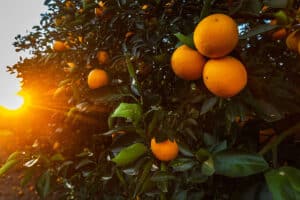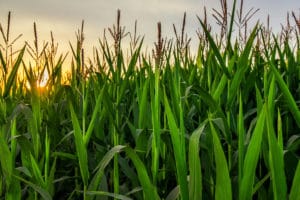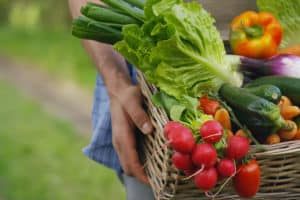Country property has always attracted a bit more than its fair share of philosophers, utopians, missionaries, dreamers, writers and nuts.
As farmers, many in this group fail, some despite their best efforts, other because of them. Jefferson and his plantation were essentially bankrupt when he died, though we now celebrate his experimentalism.
Writers who farm tend to be wealthier than farmers who write. It’s clearly easier to persuade the public that a dopey plot is worth reading than it is to persuade the dumbest househusband that a comparably rotten potato is worth eating.
Louis Bromfield is no longer a household name except maybe around his farm near Mansfield, Ohio, but he once was rich and famous.
Bromfield won a Pulitzer Prize for a novel in the 1920s, followed by a number of bestsellers. He wrote from the countryside of northern France. He was admired and connected. When war clouds gathered in the late 1930s, he chucked France and fiction to return to Pleasant Valley where he had been raised.
He was looking for the innocence and agricultural plenty of his youth. He bought his first three farms when snow covered the land. In the spring, he discovered that he owned unproductive, eroding dirt—worn-out farm land that couldn’t pay for itself.
Bromfield eventually acquired 1,000 such acres divided among four farms. He found that necessity forced him to change his land and himself. He became a dirt guru, writing books about soil-building practices like tilling, mulching and manuring.
He called his place, Malabar. It survives as a state park that combines a certain amount of farming with even-more-certain amounts of visitor-oriented activities and stuff to buy.
Bromfield hated the dirt-poor agriculture he found left after decades of deep plowing, overgrazing and running row crops up and down hillsides rather than along contours. He hated farmers farming poorly and being poor, which were connected in his thinking.
Materialism, greed and ignorance, he believed, had combined to wreck American farming in the 20s and 30s. If dirt could once again be made productive, if farmers learned to work with, rather than against, Nature, he thought they could regain independence and financial security.
So he began rebuilding his own dirt as a way to fix farming and bring a measure of prosperity to farmers. He developed and followed principles of soil conservation as well as many of the precepts of what we now know as sustainable agriculture. But he opposed both forcing farmers to practice conservation and subsidizing such efforts, our current policy. He thought knowledge and self-interest would do the trick.
Bromfield organized Malabar as a voluntary Soviet-style collective with him and his pocketbook as the State. Each of his farmers was given a rent-free house and above-average salary. They called him, “The Boss.” He used writing money to subsidize the application of these ideas.
Bromfield’s soil-conversation results appealed to the thousands of farmers who visited each year. They wanted to restore their own land, produce better crops and make more money.
His ideas on social and economic organization went nowhere. No one replicated his paternalistic model of do-good capitalism with its old-MacDonald resistance to “industrialized” agriculture. Malabar State Park does not trumpet Bromfield’s odd mix of anti-capitalist capitalism and anti-Stalinist Groucho-Marxism.
He built and lived in what he called, the Big House—the spot where Lauren Bacall married Humphrey Bogart. Celebrities visited, bringing their spotlights to worms and dirt. He wrote farm books, did a radio show and spread his gospel.
Many of Bromfield’s principles on sustainable agriculture are now widely accepted. Some ideas, like “whatever is to be sold off the farm has to walk off,” are not.
His hope that a sustainable agriculture would lead to a sustainable farm business did not work out. Self-sufficiency, however it was defined, did not happen. Malabar does not appear to have been profitable. Whether it could have been brought back without Bromfield’s writing-based subsidies is debatable.
The “greener” a farm is, the more expensive its set-up investment and the higher-priced its products—at least, that’s what I’ve seen. The greenest agriculture often seems to be the work of those who made their money doing something other than farming. They sell to folks like themselves. If Whole Foods Market can ever price tomatoes for a Wal-Mart shopper like me, a real change will have occurred.
Bromfield helped another ahead-of-his-time crank, Edward H. Faulkner, author of Ploughman’s Folly. Faulkner argued that the then-standard practice of deep plowing destroyed soil and lowered yields. He advocated abolishing the moldboard plow, for which the agriculture establishment of that era called him a whack-job.
Faulkner’s argument was based on his experiments on two acres of rented land in Elyria, Ohio. Today, much of his work in “conservation tillage” is widely practiced in various forms. Farmers made his book a bestseller and changed the way they thought and did.
The notion that runs through writer-farmers like Jefferson, Tolstoy and Bromfield to the sustainable farmers of our day is that better knowledge produces better practices which produce better results. While I agree with this, I’ve also seen the human urge to force Nature to do what we want produce unintended consequences and harm.
Every farmer has an idea of how to do farming. Calling it a philosophy suits some. In others, it’s just a small notion—like preserve the dirt and keep the water reasonably clean.
Bromfield was more at peace failing at farming than succeeding at fiction. Had he been a bad writer, however, he would have never been able to give farming a go or make the part of his reputation that endures.
His need to rebuild Malabar’s dirt led to new ways of thinking about and doing agriculture, which led to rebuilding his writing and new ways of doing that. Had he not been a writer, his work at Malabar would have likely stayed a secret in Pleasant Valley.
He died thinking that he had done some worthwhile things. Those who remember him, agree.
This content may not be used or reproduced in any manner whatsoever, in part or in whole, without written permission of LANDTHINK. Use of this content without permission is a violation of federal copyright law. The articles, posts, comments, opinions and information provided by LANDTHINK are for informational and research purposes only and DOES NOT substitute or coincide with the advice of an attorney, accountant, real estate broker or any other licensed real estate professional. LANDTHINK strongly advises visitors and readers to seek their own professional guidance and advice related to buying, investing in or selling real estate.









Interesting piece in that it’s hard to find anyone talking about Bromfield these days. However, your bias for the cheap food agriculture that displaced pre-WWII realities is foolish:
“If Whole Foods Market can ever price tomatoes for a Wal-Mart shopper like me, a real change will have occurred.”
The point that you seem hard-headedly to ignore is that Walmart is able, with the collusion of the agribusiness oligopsonies and oligopolies to routinely provide “food” at *below the cost of production*! Hence the Farm Bill and the massive subsidy structure that is required to maintain this perverse and exploitative system.
Bromfield was actually concerned in his writing about making food affordable; one can only conclude that he had no idea how low low could go!
You are the one that needs to change, Sir. Your habits and your decisions. It reflects poorly on you that you do not find an alternative to patronizing Walmart when you should know better. You’ll notice, if you are astute, that this is not an endorsement of Whole Foods, or yuppies, or anything like that. It drives me crazy when rural people, whose communities are drying up and disintegrating (or are already mummified) are chearleaders for Walmart-style cheap food; I guess alcoholics also love what is poisoning them.
Farming needs to be a viable business with viable prices if we are going to get ourselves out of the environmental and social catastrophe that we have got ourselves into, with the help of attitudes like yours.
For shame.
I hate to burst your bubble Chris, but every person I have met from a small rural town hates WalMart! Why? They get upset because they drive the mom & pop grocer that’s been in business since before the dinosaurs roamed the earth out of business. When in fact, WalMart hires more employees, has lower prices and drives more local economic growth than all the stores in a small town combined. If Walmart shuts down in my town – the town is done. Consumers want lower prices and WalMart is giving it to them. Ahhh, american capitalism at work.
However, this will ultimately be part of the destruction of america in my opinion. Capitalism is a great system and has worked well in this country for many years – more so than any other system in any other country. Our desire to buy cheaper has caused manufacturers, growers, etc. to figure out how to make it cheaper. And this means making it oversees. This creates overseas growth and demand for oil. Then they buy our country back with our money.
This underlying process that is happening will be the end of the USA as we have known it. It is and will be too big to fix without all out massive destruction to the system. Or you could call it massive fear. Fear is the only way to change people and their habits.